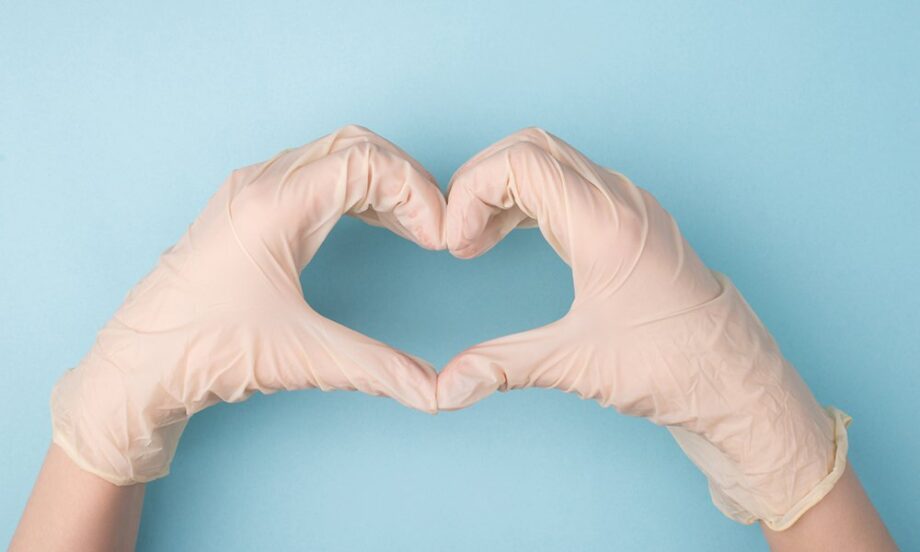Sexual health
A Guide to Safer Sex During the Pandemic
Right now, it is safest to have sex only with yourself and those you are isolating with.
With social distancing recommendations becoming increasingly strict, it’s hard to know what kind of contact with people is and isn’t safe these days.
Does the coronavirus mean you have to put your sex life on halt? And if you’re not willing to do that, are there ways to minimize the risks?
Here are the answers to some frequently asked questions about sex and the coronavirus.
Can the coronavirus be sexually transmitted?
According to the Centers for Disease Control and Prevention, COVID-19 is spread through respiratory droplets that are produced when someone infected coughs, sneezes or talks. COVID-19 can also be spread by people who have not yet started to show symptoms of the virus. This is why the CDC, the World Health Organization and other government agencies have recommended strict social distancing measures, advising people to stay at least six feet away from other people not in your household.
While it has not been sufficiently studied as to whether COVID-19 can be passed via bodily fluids, like semen and vaginal fluids, since the majority of sexual encounters occur within six feet of another person, engaging in sex with someone who has the virus can result in you becoming infected.
If you are worried that you or your partner may have the virus, it is best to postpone sex until you both know you are both healthy.
Read: How to Stop COVID-19 From Ruining Your Sex Life
What sexual behavior is safe to engage in right now?
In light of state governments’ instructions to avoid non-essential contact, it is safest to have sex only with yourself and those you are isolating with.
You might want to avoid sex if you or your partner are immune-compromised or otherwise at high risk for severe manifestations of COVID-19, says says Sarah Toler, certified nurse midwife, doctor of nursing practice, and science writer for Clue. If either of you have the virus, it’s best to avoid sex until you’ve fully recovered,
“Some experts say to isolate away from your partner should you start showing symptoms,” says SKYN Condoms sex and intimacy expert, certified sex coach, and sexologist Gigi Engle. “Be there to support each other if one of you is sicker than the other. This is a highly infectious virus, and it's not anyone's fault if they pick it up.”
If you want to have sex with someone outside your household or with a live-in partner when one of you is sick or high-risk, the safest way is to get creative and experiment with cyber sex, sexting, and remote-controlled sex toys.
“If you can expand your definition of what ‘sex’ is — beyond the physical acts you can do in person with another — it is very possible for individuals isolating alone to have a great sex life during this time,” says says Neil Mehta, M.P.H., founder of Royal.
The good news is, if you want to be completely safe, you can't get the virus from touching yourself. “Self-pleasure decreases the stress response and anxiety and improves mood, self-confidence, and immune function,” says sexologist and naturopathic doctor Dr. Jordin Wiggins.
Read: 11 Expert Tips for Phone Sex Beginners
How can you practice safer sex?
Even if you’re only having sex with one person and you’re isolating with them, you should still wash your hands after you go outside and after you have sex. You should also wash your hands and any toys you use after you masturbate.
Spend at least 20 seconds each time you wash your hands, and use soap and hot water, says Toler. “While it’s nice to stay in bed to enjoy the after-sex glow, right now it’s best to wash up right away,” she adds.
According to the CDC, best way to prevent illness is to avoid being exposed to anyone with the virus. If you have sex with anyone outside your own household, Engle advises only engaging with people who have been self-isolating and don’t take public transportation to see them.
Wiggins also suggests asking them if they’ve made contact with anyone who has tested positive. And if you get sick, tell your partners immediately — even if you weren’t symptomatic when you were with them, you could have been a carrier.
Read: A No-Fuss Guide to Video Sex
Should you stock up on contraception?
With drugstore shelves under-stocked, it’s a good idea to have extra supplies around. At the same time, you don’t want to hoard everything so that nothing’s left for other people.
“Stockpiling of any item leads to anxiety and uncertainty for those unable to procure that item,” says Toler, so she suggests keeping just a two-month supply around.
What if you can’t get to the doctor’s to get birth control?
If you can’t go to the doctor in person because of social distancing or because they’re unavailable, you should still call your doctor — they may be able to see you virtually or just call in a prescription, says Toler. Otherwise, you can use an online service like Doctor on Demand or Amwell.
Once you get a hold of a doctor, you can ask for a three- or six-month prescription so that you don’t have to worry about getting your next one for a while. If you can’t get an appointment in time to get a prescription, you can usually get condoms and spermicide at the drugstore.


















